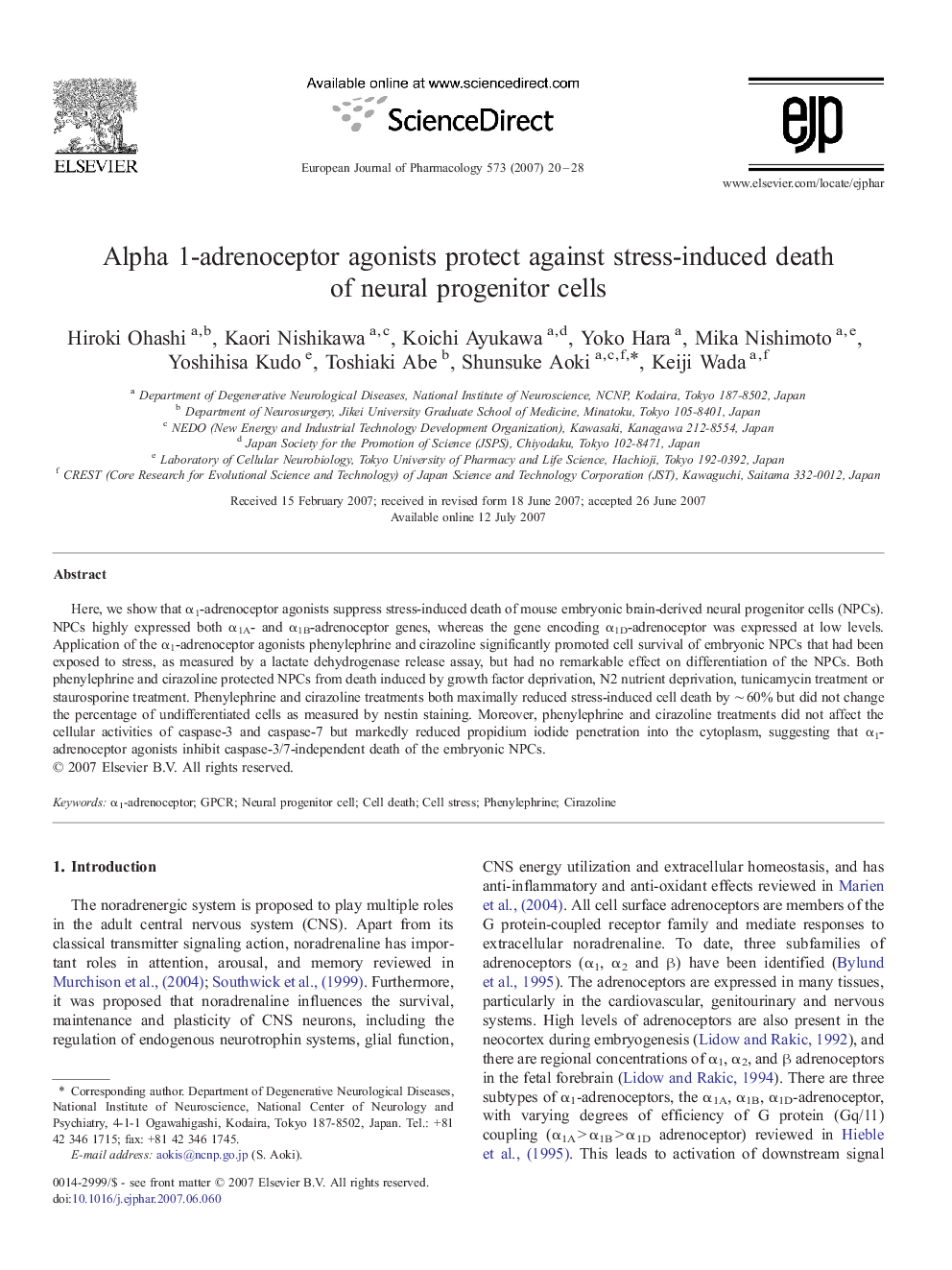| Article ID | Journal | Published Year | Pages | File Type |
|---|---|---|---|---|
| 2535861 | European Journal of Pharmacology | 2007 | 9 Pages |
Abstract
Here, we show that α1-adrenoceptor agonists suppress stress-induced death of mouse embryonic brain-derived neural progenitor cells (NPCs). NPCs highly expressed both α1A- and α1B-adrenoceptor genes, whereas the gene encoding α1D-adrenoceptor was expressed at low levels. Application of the α1-adrenoceptor agonists phenylephrine and cirazoline significantly promoted cell survival of embryonic NPCs that had been exposed to stress, as measured by a lactate dehydrogenase release assay, but had no remarkable effect on differentiation of the NPCs. Both phenylephrine and cirazoline protected NPCs from death induced by growth factor deprivation, N2 nutrient deprivation, tunicamycin treatment or staurosporine treatment. Phenylephrine and cirazoline treatments both maximally reduced stress-induced cell death by â¼Â 60% but did not change the percentage of undifferentiated cells as measured by nestin staining. Moreover, phenylephrine and cirazoline treatments did not affect the cellular activities of caspase-3 and caspase-7 but markedly reduced propidium iodide penetration into the cytoplasm, suggesting that α1-adrenoceptor agonists inhibit caspase-3/7-independent death of the embryonic NPCs.
Related Topics
Life Sciences
Neuroscience
Cellular and Molecular Neuroscience
Authors
Hiroki Ohashi, Kaori Nishikawa, Koichi Ayukawa, Yoko Hara, Mika Nishimoto, Yoshihisa Kudo, Toshiaki Abe, Shunsuke Aoki, Keiji Wada,
